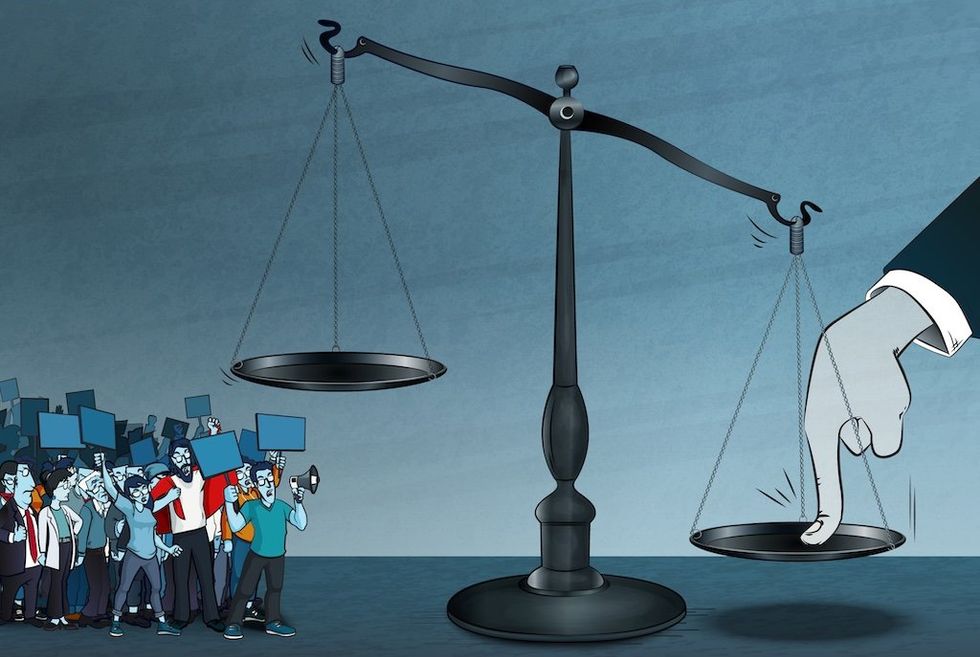Hidden dangers of birth control every woman needs to know


Many women go into the new year with health-related goals. These usually involve gym memberships and nutrition plans — which are great! But diet and exercise are not the only areas of health women should be concerned with.
When it comes to birth control, most women are unaware of the harm that’s being done to their bodies.
Earlier this year, Allie Beth Stuckey invited health coach Emily Detrick on “Relatable” to discuss a number of issues related to women’s health, including the long list of risks related to taking any form of birth control.
“None of them are good,” Detrick says of birth control. “I don’t think any woman needs to be on birth control for any reason.”
Even the women whose doctors have prescribed them birth control to “regulate their periods” are taking unnecessary medication, according to Detrick.
“It doesn’t regulate anything” because “you don't get a period on birth control,” she says. “It's not a real period; it's a withdrawal bleed from withdrawing from these fake hormones — fake progesterone, fake estrogen.”
Most birth control medications work by putting the body in a “postmenopausal state” or a state similar to that of “pregnancy,” which means “you’re not ovulating,” she explains.
As for the non-hormonal copper IUD, Detrick says that it’s also not safe because “copper toxicity is a big issue,” and the device “inflames your uterus” where it’s inserted, so “you could still have an egg be fertilized every single month,” but it “doesn't implant” due to the inflammation.
Further, that inflammation doesn’t necessarily stay localized. For many women, the copper IUD can cause menstruation to be exceptionally painful and heavy.
Allie points out that in addition to potential toxicity and inflammation, this form of birth control is “a moral and ethical problem for those of us who believe that life starts at fertilization.”
When it comes to pill forms of birth control, Detrick says that the fact that we have to take medication every single day when we can only “get pregnant six days out of every cycle” should concern us.
“Why are we taking birth control every single day to prevent something that can only happen maximum six days?” she asks, noting that a huge percentage of women have no idea how their own fertility works.
Many women “don't think about [the risks of birth control] until they want to get pregnant” and suddenly they’re experiencing “infertility problems,” which have dramatically increased in recent years.
On top of the devastating link between birth control and infertility, a huge number of women taking birth control also experience psychological issues, including abnormal levels of depression and anxiety.
“Teenage women are 70% more likely to be prescribed anti-depressants and anti-anxiety medication,” says Detrick, adding that this was her personal experience.
You feel like “a prisoner in your own body,” she recalls.
However, perhaps the most disturbing potential side effect of birth control is that it can increase the likelihood of bisexuality.
Detrick says that this notion is not just conjecture. There’s actually “data” and “studies” that suggest that hormonal birth control has an impact on attraction.
In one of these studies, women taking birth control were shown AI images of typical men and then images of those same men with slightly more feminized features.
“Women on birth control chose the men with more feminine features,” says Detrick.
In another study, “the sweaty T-shirt test” was developed. In this test, men work out in T-shirts and then place their sweaty shirts in a bag. Women, some of whom are on birth control and others who are not, are then asked to smell these mens’ shirts — “essentially smelling their pheromones.”
“The women that were on birth control chose the men who were more genetically similar to them,” says Detrick, explaining that for the most “viable, resilient offspring,” you need “someone with the DNA furthest from you.”
Detrick has also worked with clients who “broke off their engagement” after getting off birth control and realizing they weren’t attracted to their partners anymore.
To hear more about the hidden effects of birth control, watch the clip above.
Want more from Allie Beth Stuckey?
To enjoy more of Allie’s upbeat and in-depth coverage of culture, news, and theology from a Christian, conservative perspective, subscribe to BlazeTV — the largest multi-platform network of voices who love America, defend the Constitution, and live the American dream.
Originally Published at Daily Wire, Daily Signal, or The Blaze
What's Your Reaction?
 Like
0
Like
0
 Dislike
0
Dislike
0
 Love
0
Love
0
 Funny
0
Funny
0
 Angry
0
Angry
0
 Sad
0
Sad
0
 Wow
0
Wow
0







































































